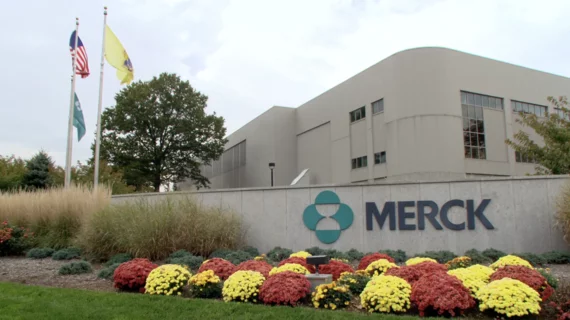Merck sues US government over Medicare's drug price negotiation liberties, calls program a 'sham'
In an attempt to block Medicare’s new negotiating liberties pertaining to top-selling medications, Merck is suing the U.S. Department of Health and Human Services (HHS) and the Centers for Medicare and Medicaid Services (CMS).
The pharmaceutical giant’s lawsuit is in response to a portion of the Inflation Reduction Act deemed the Drug Price Negotiation Program for Medicare. The program's purpose is to provide a bridge between federal officials and prescription drug manufacturers that would enable them to negotiate voluntary price agreements for certain medications, such as Merck’s Januvia, which is used to treat type 2 diabetes. CMS and HHS maintain that these agreements would save patients money while also ensuring that pharmaceutical companies have ample funds to develop new medications.
But not so fast, says Merck, which described the program as a “sham” that “coerces” manufacturers to enter agreements to sell their top products at just a fraction of their actual value.
“It involves neither genuine ‘negotiations’ nor real ‘agreements.’ Rather, once HHS unilaterally selects a drug for inclusion in the program, its manufacturer is compelled to sign an ‘agreement’ promising to sell the drug to Medicare beneficiaries at whatever ‘fair’ price the agency dictates, which must represent at least a 25% to 60% discount,” Merck alleges.
The complaint goes on to imply that if companies do not comply with such agreements, they will be subject to incurring tax penalties “amounting to multiples of the drug’s daily revenues.”
In a statement announcing the lawsuit, Merck notes that it can take a decade or more, in addition to billions of dollars, to develop a new drug. The company also referenced its own investments into researching new treatments since the early 2000s. In 2021 alone, such spending totaled more than $100 billion across the pharmaceutical industry.
“Unfortunately, this progress is now at risk due to unconstitutional provisions in the Inflation Reduction Act (IRA), necessitating the legal action Merck has taken in U.S. Federal Court against the United States government,” Merck’s statement reads. “We believe this program will negatively impact biopharmaceutical innovation and the sector’s work to develop lifesaving and life-changing innovations.”
From a legal standpoint, Merck is citing violation of the First and Fifth Amendments of the Constitution.
Merck maintains that they continue to be committed to addressing deadly diseases patients are faced with, but that in order for that to happen they “need to make sure innovation is supported and encouraged by creating a policy environment conducive to the kind of sustained investment that leads to new treatments.”
Merck’s statement can be found here, and their complaint here.

